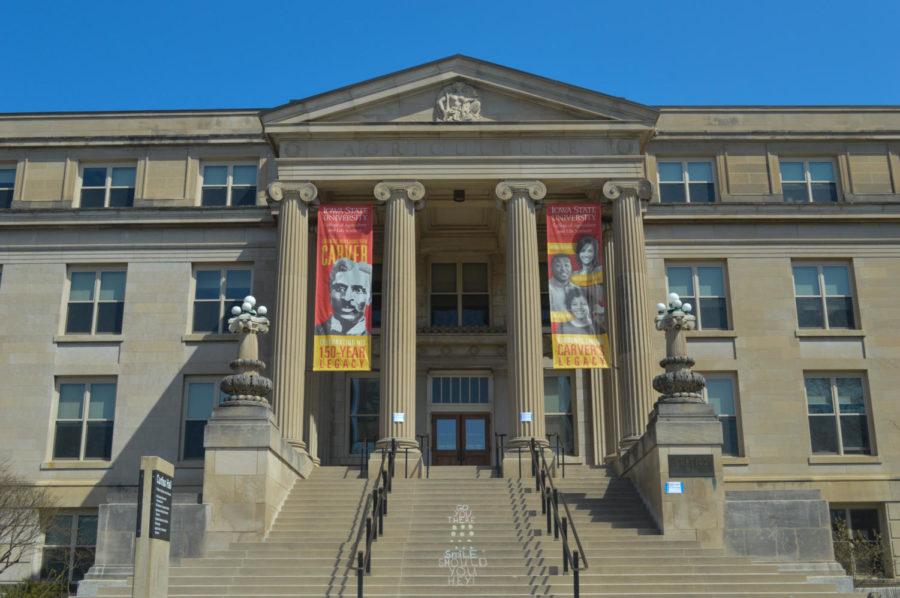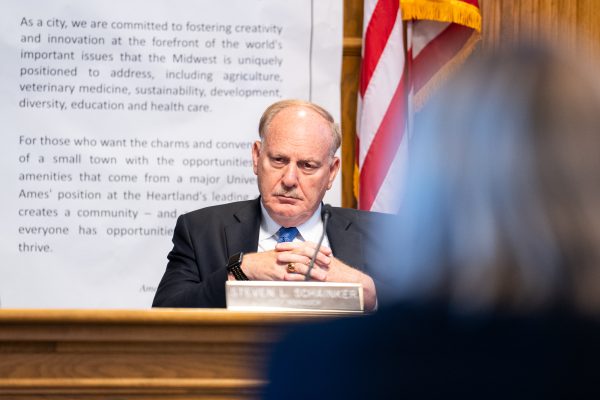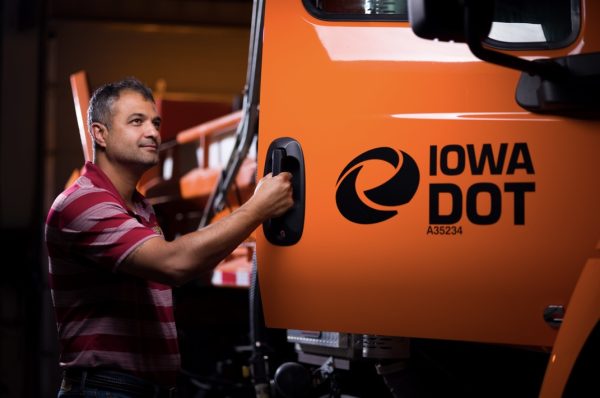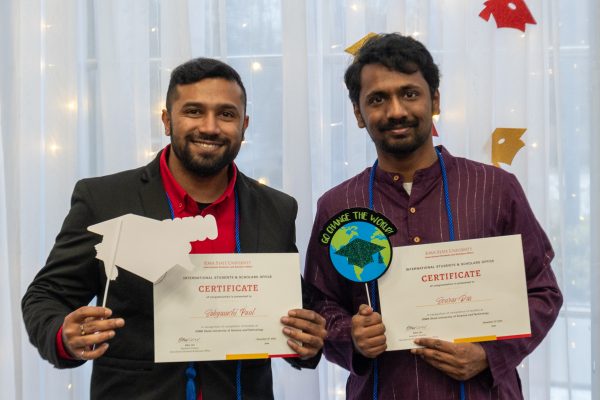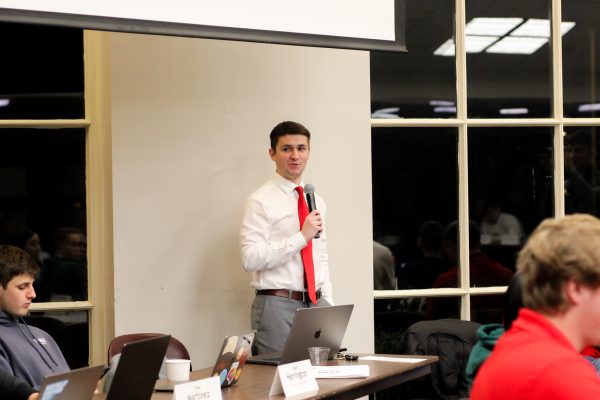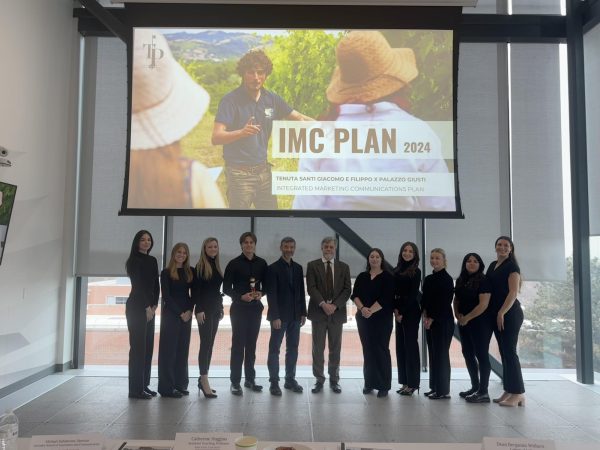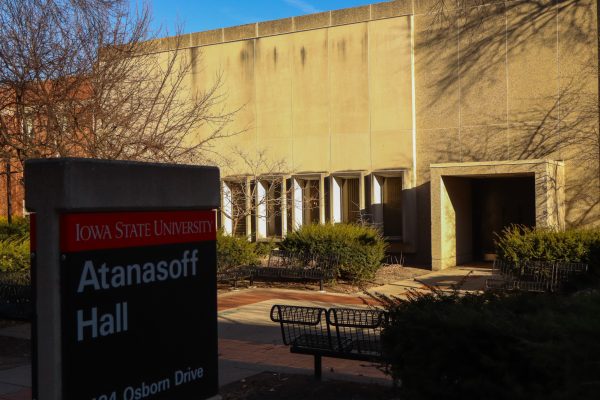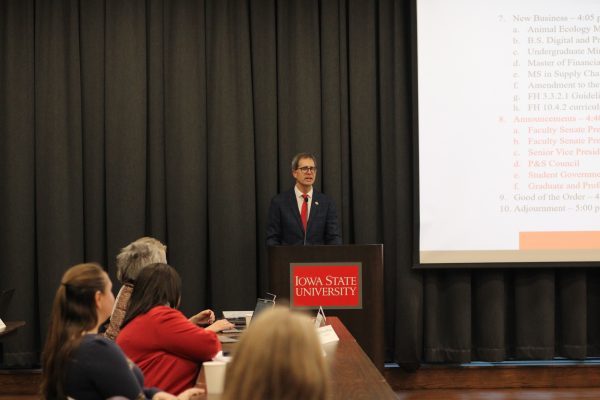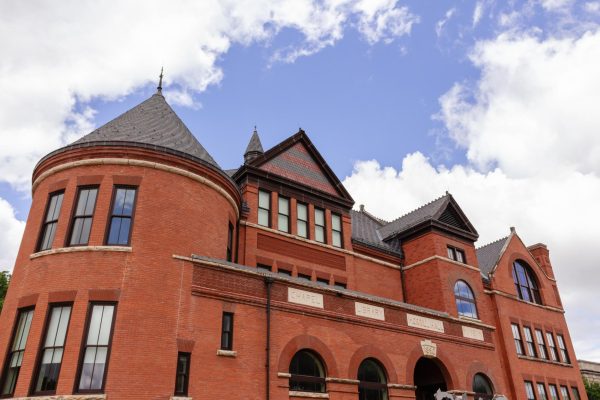Horticulture students share semester-long research projects
Jessica Kalahar/Iowa State Daily
Curtiss Hall is home to The College of Agriculture and Life Sciences.
Iowa State’s Science with Practice students celebrated their semester’s worth of research and hard work through a display of posters in the rotunda of Curtiss Hall.
Science with Practice is a semester-long program offered by the Department of Agricultural Education and Studies, which aims to provide undergraduate students with experiential-based learning within fields related to their majors or interests.
The session took place on Wednesday with poster presentations from eight students who shared their research and personal experiences that they gained throughout the semester with other students and faculties.
One of the mentors, Chris Currey, who is also an associate professor of horticulture, expressed his enjoyment of working as a mentor with undergraduate students. Currey said that this was his ninth year as a mentor for the program.
Currey emphasized the opportunity given by the program, as it allows students and faculty members to work together, hand-in-hand in research.
“It’s a good way for us to get to know each other as far as work and research relationship,” Currey said. “It’s fun to bridge the gaps between my work in the classroom as an instructor and my work in the greenhouses or the lab as a research scientist.”
Olivia Liebing, a junior majoring in horticulture, said this program allowed her to realize the importance of precision while being a researcher.
“Most of the time in work, you just want to get it done,” Liebing said, “but you actually have to make sure everything is sterile and thought through.”
Liebing studied the application of poa bulbosa, a type of turfgrass, into an agronomic setting to hinder erosion rates. Liebing’s research also included the effect of seed bubbles on seed germination.
Liebing advised future students interested in this program on the importance of finding a research professor who cares about teaching and mentoring.
“I was super lucky that with my mentor, he offered lots of great advice and didn’t just tell you the answer,” Liebing said. “Instead, he’d ask a question and try to lead you there, and I just appreciated that.”
One of the students, Jacob Friedrich, a senior majoring in horticulture and global resource systems, said the program taught him to be more flexible in his plans as changes were constant throughout conducting his research.
“I think this experience really taught me to be flexible in my experimental planning,” Friedrich said. “This was kind of a grad school trial run, and they always say that nothing ever goes to plan–and they’re right; it doesn’t.”
Friedrich’s research focused on working to quantify the effect of daily light integral on the growth and development of spring radish grown hydroponically in controlled environments.
“Do it, because no matter what, you’re either going to find out you love it or you don’t,” Friedrich said. “It’s just a really important guide for your future, especially if you’re considering graduate school.”
Kate Jauron, a junior majoring in horticulture, said through the program, she was given the opportunity to learn more about working and applying different practices in the greenhouse and the labs. Jauron also said that this experience solidified her future plans in applying to graduate school.
“Going into this, I wasn’t quite sure if I was going to go to grad school or not, but now that’s definitely something I’m planning on doing,” Jauron said.
Jauron’s research was regarding the effect of different types and concentrations of fertilizers on the regrowth of containerized herbs.
Students interested in registering for the upcoming semester are able to do so by registering for the Science with Practice course, AGEDS 312, on AccessPlus.
“You get credit, you get paid and it’s also a fun and low-pressure class,” Jauron said. “It’s more based on your own learning about science and also about how you grow as a person.”
Editor’s note: This article was updated to reference the correct name of the type of turfgrass Liebing studied.
Your donation will support the student journalists of the Iowa State Daily. Your contribution will allow us to purchase equipment, send our student journalists to conferences and off-set their cost of living so they can continue to do best-in-the-nation work at the Iowa State Daily.


